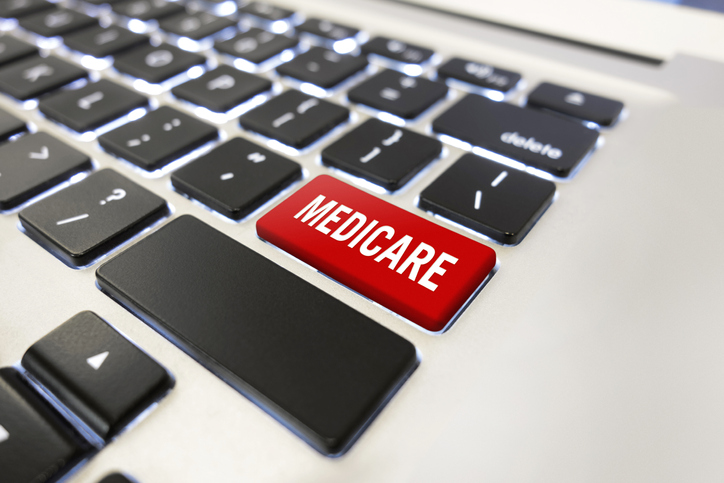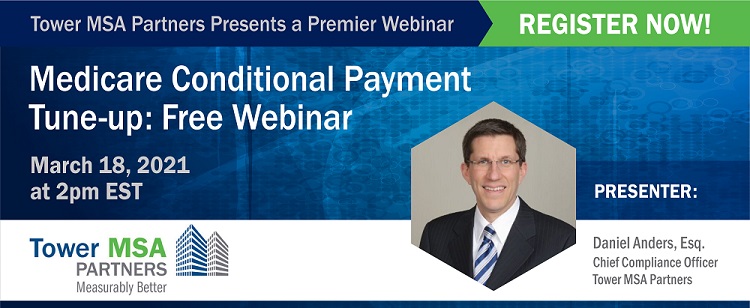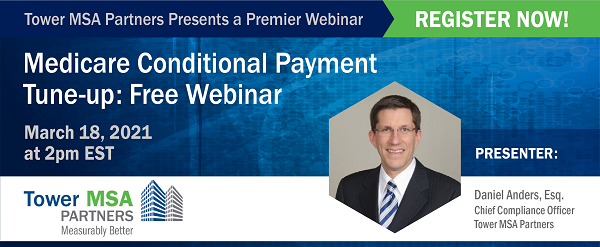In response to a Medicare conditional payment demand, payers can access a five-level appeals process, including a hearing before a Centers for Medicaid and Medicaid Services (CMS) administrative law judge (ALJ). Most conditional payment demand appeals are resolved at the first two levels: redetermination and reconsideration. However, some are escalated to an ALJ as happened in this case.
ALJ Appeal Success Story
On July 24, 2020, the Commercial Repayment Center (CRC) issued a demand for reimbursement of $149,902.98. The work injury had aggravated a pre-existing left knee skin graft, resulting in an infection of the left knee. The payer accepted the aggravation but not the long-term condition of the knee.
Charges on the demand were either completely unrelated to the left knee or for treatment deemed related to the longstanding pre-existing condition of the left knee. An appeal was filed, and the CRC redetermination decision stated that none of the charges would be removed.
At this point, a second-level appeal was filed with the Qualified Independent Contractor (QIC). CMS contracts with the QIC to provide an independent review apart from the CRC. Its March 26, 2021 reconsideration decision was partially favorable because almost all the charges related to body parts other than the left knee were removed from the demand. The revised demand was $79,489.97, which also included interest.
The next step was an ALJ appeal submitted on May 12, 2021. It can take two to three years to receive a hearing date, but in this case, it took a little over a year to receive a hearing date set for June 28, 2022.
The difficulty in this appeal is that after some initial treatment in the state where the injury occurred, the injured worker moved to another state where he received further treatment. The payer never received bills from the out-of-state medical providers whose charges were listed in the conditional payment demand. Fortunately, we could work with the defense attorney who subpoenaed the medical records. Unfortunately, upon review, the medical records were unclear on causation.
Nonetheless, we put our best argument forward at the hearing and through our brief to the ALJ that the work-related infection was a temporary aggravation of a long-standing condition of ulcers to both knees. This was supported by an inconsistent history from the injured worker and medical notes, which implied that the post-injury infection had resolved shortly after the accident.
What is helpful at the ALJ appeal level is that you can speak to the judge, explain your position and answer his or her questions. This differs from the first two levels of appeal, which come down to submitting the appeal and receiving a decision.
In a September 12, 2022 decision, the ALJ agreed with our position. As a result, the demand, which by then exceeded $80,000, was reduced to $441.19.
Keys to Appeal Success
Here is what made this appeal successful:
Appeals Deadline Met
All five levels of appeal have specific timeframes for an appeal submission. It is essential to file an appeal by the designated deadline which should also prevent the CRC from referring the debt to the Treasury Department for collection (assuming the debt is not paid during the pendency of the appeal).
In this case, our client had designated Tower as its recovery agent, which means we receive copies of letters and notices the CRC sends this client. As the recovery agent, we can immediately advise the client of a Conditional Payment Notice or Demand Letter, what it means, and the deadline for action. As a result, all appeals deadlines were met.
Cooperation Between Tower and Client
Successful conditional payment appeals are often based on medical records, Independent Medical Exams and utilization reviews, as well as legal documentation. It is imperative that the claims professional and defense attorney work with Tower to obtain the documentation necessary to support the appeal. In this case, the defense attorney’s diligent efforts at subpoenaing and then follow-up with the medical provider resulted in the timely receipt of the out-of-state medical records.
Knowledge and Experience with Conditional Payment
In addition to having supporting documentation, the appeal must provide an acceptable basis for why the charges should be removed from the demand. Tower’s team of professionals has the knowledge and experience to combine the facts and law to make successful arguments to the CRC and QIC. Additionally, any matter appealed to the ALJ will be handled by Tower’s Chief Compliance Officer, Dan Anders, who has two decades of experience in Medicare Secondary Payer compliance, including prior successful ALJ appeals, as exemplified in this case.
Whatever your conditional payment scenario, we stand ready to assist. Learn more about our conditional payment services here, where you can also refer a matter for handling.









